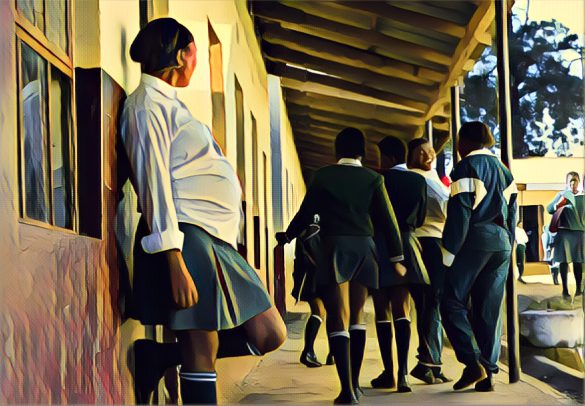Zimbabwe has a high rate of teenage pregnancies, but many girls who become mothers are denied the right to education. A new law that aims to change is facing challenges from some schools and communities that stigmatize and discriminate against pregnant girls and adolescent mothers.
The Education Amendment Act of 2020, which came into effect in January, states that no pupil can be excluded from school for getting pregnant. The law also requires schools to provide a safe and supportive environment for young mothers and their children.
However, some schools are violating the law by turning away pregnant girls and adolescent mothers who want to continue with their education, according to a report by NewZimbabwe.
The report, which focused on Chihota, a farming community about 80 kilometers from the capital Harare, revealed that many girls were forced to drop out of school after falling pregnant. Some of them were lured into early marriages by older men who offered them financial support, while others faced abuse and neglect from their partners and families.
One of the girls interviewed,17, said she had two children from two failed marriages and wanted to go back to school, but local schools refused to enroll her because of her background.
“They said she is well-known in this area and will likely influence other learners,” said Moleen Svisva, a representative of Shamwari Yemwanasikana, a community-based organization that supports adolescent mothers in Chihota.
A national assessment on adolescent pregnancies in Zimbabwe, released in June by the United Nations Children’s Fund (UNICEF), the United Nations Population Fund (UNFPA) and the United Nations Educational, Scientific and Cultural Organization (UNESCO), found that 97 percent of girls did not return to school after falling pregnant despite the new policy.
The report cited several barriers, such as stigma from peers, parents, community members and teachers, lack of childcare facilities and support services, and high costs of education.
The report also noted that the policy focuses on the adolescent mother and does not make provision for the infant, which makes it difficult for adolescents to balance their caregiving responsibilities with attending school.
“The current education system has no formal provision for children less than three years of age, especially in rural communities where most of the pregnancies are happening; making it difficult for breastfeeding mothers to access school,” it said.
According to the UNFPA, about 350,000 girls aged between 10 and 19 fell pregnant in Zimbabwe between 2019 and 2022. The Covid-19 pandemic, which disrupted learning and increased poverty, is believed to have worsened the situation.
Activists say the high prevalence of pregnancies among school girls is also fueling child marriages, as most girls see no other alternative than to get married after falling pregnant and giving birth.
Progressive Teachers Union of Zimbabwe president Takavafira Zhou said many girls in Zimbabwe were in this predicament as the school system was not conducive for adolescent mothers.
He said one of the solutions could be the setting up of special schools to cater for adolescent mothers, but the idea was shot down by the Ministry of Primary and Secondary Education, which said such a set-up would be discriminatory.
“The challenge we have is that we have a policy, but its implementation is not clear. There is no clear-cut policy,” Zhou said.
Ministry of Primary and Secondary Education spokesperson Taungana Ndoro said schools that were refusing to enroll adolescent mothers were breaking the law.
“No schools are doing that in Zimbabwe. We have not received such reports,” Ndoro said.
For a long time, public health advocates in Zimbabwe have been pushing the government to give adolescents access to reproductive health services and education.


